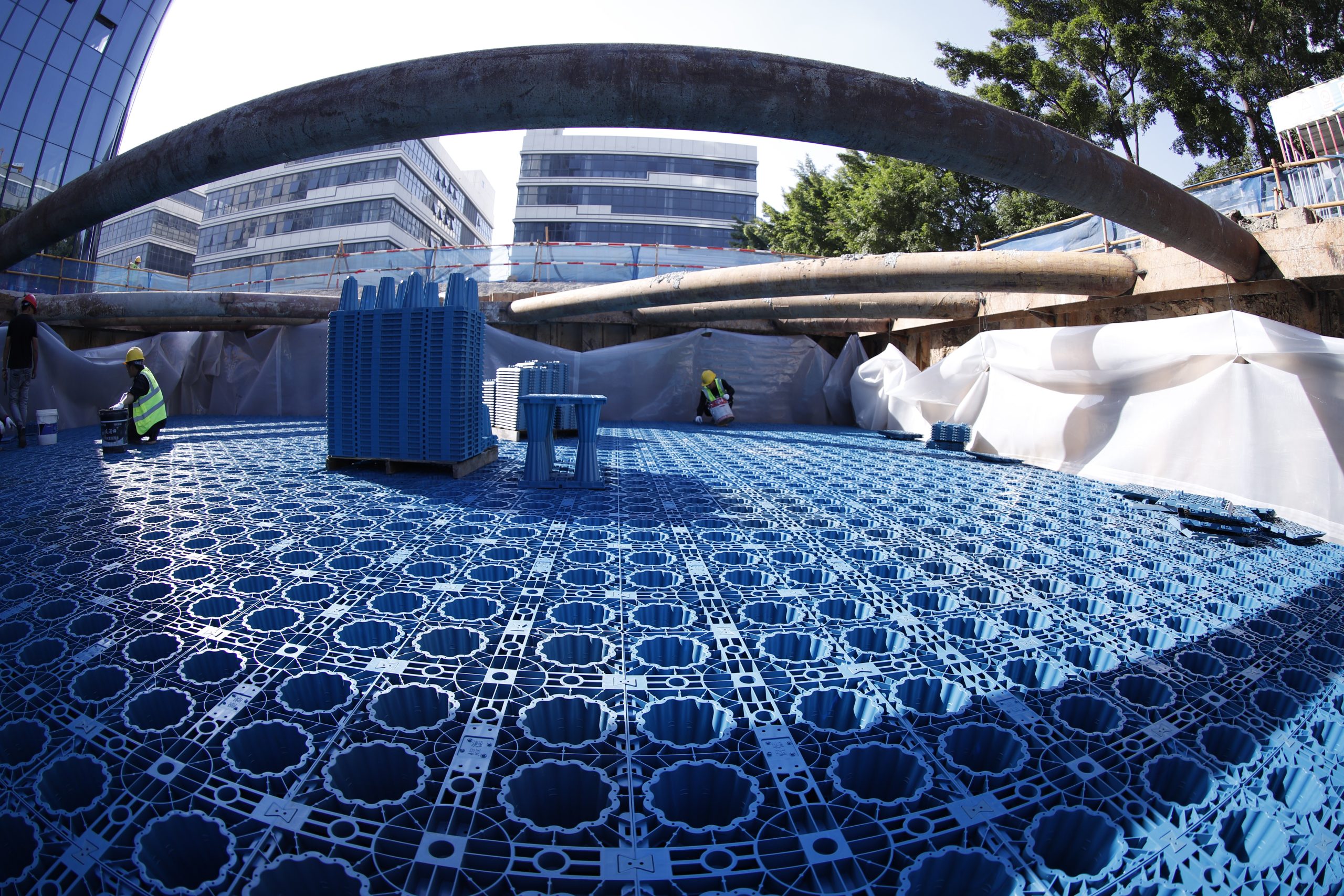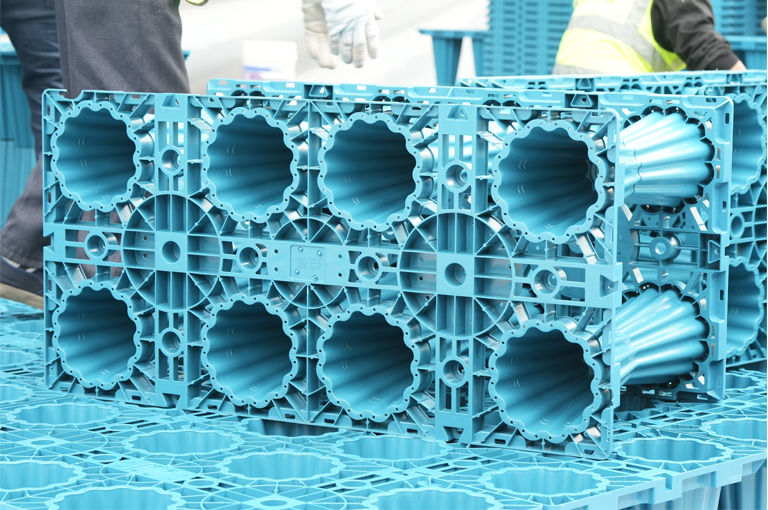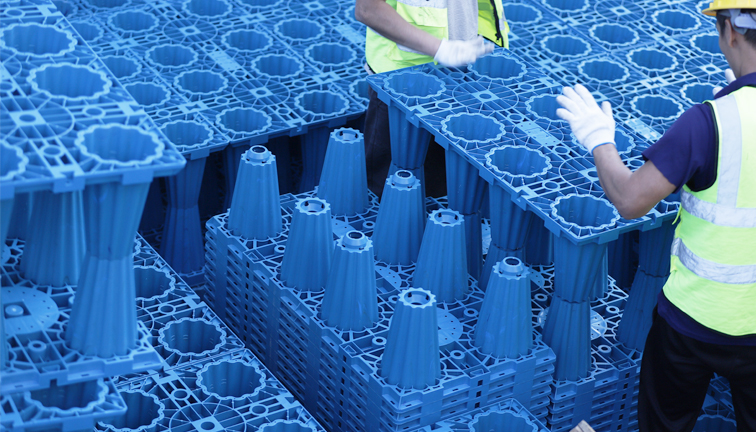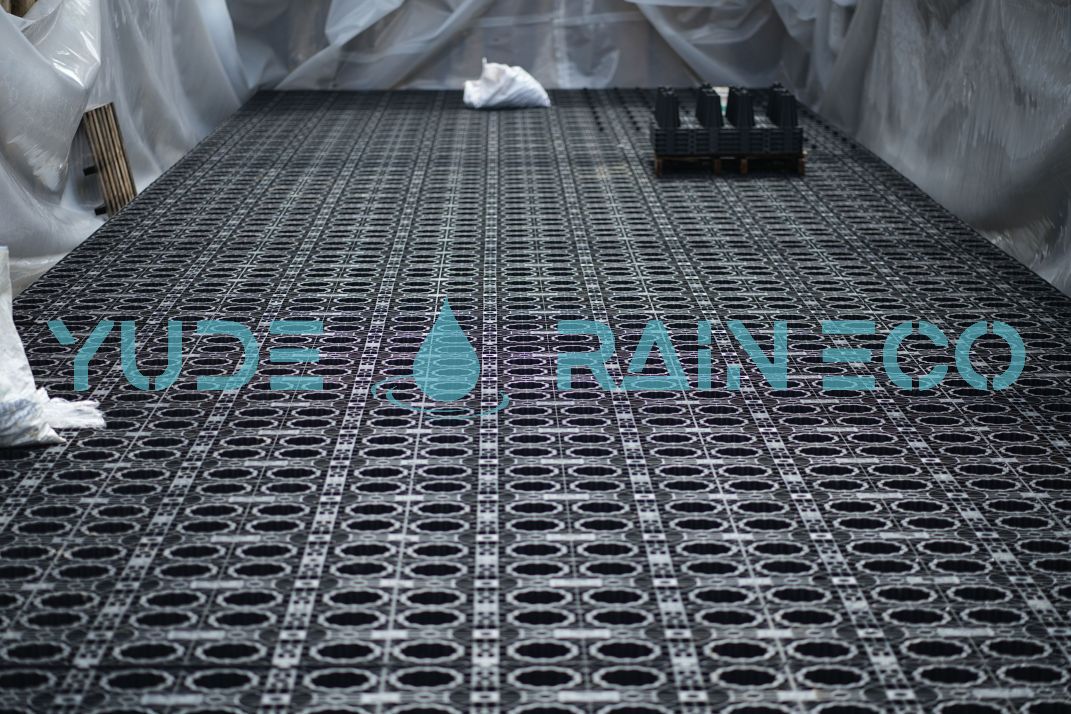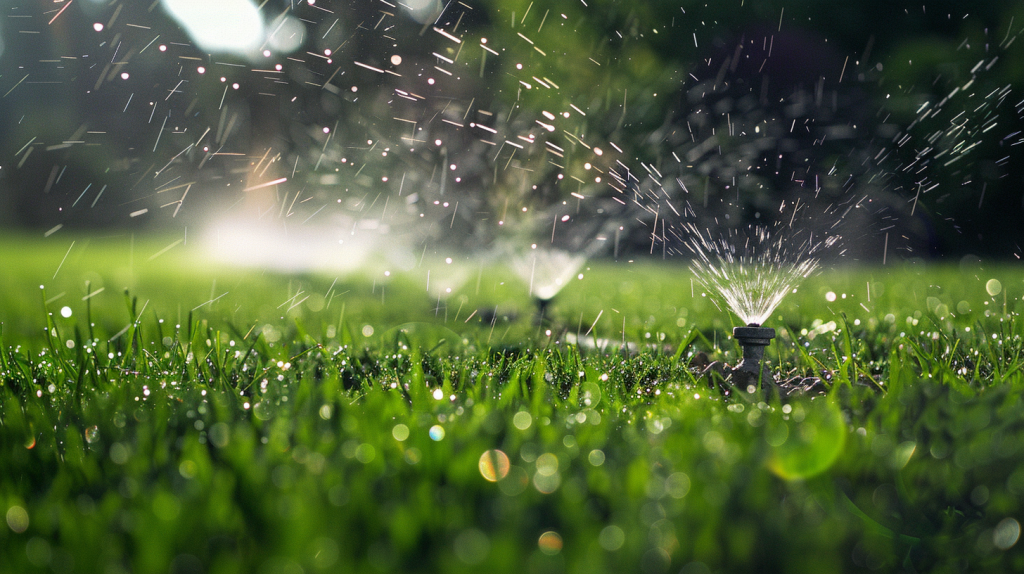Modular Rainwater Cisterns
Modular rainwater cisterns are storage systems designed to collect and store rainwater using a flexible, scalable approach. They consist of interconnecting units (modules) that can be assembled to create a cistern of the desired size and capacity. These systems are ideal for residential, commercial, and industrial applications where water conservation and efficient water management are essential.
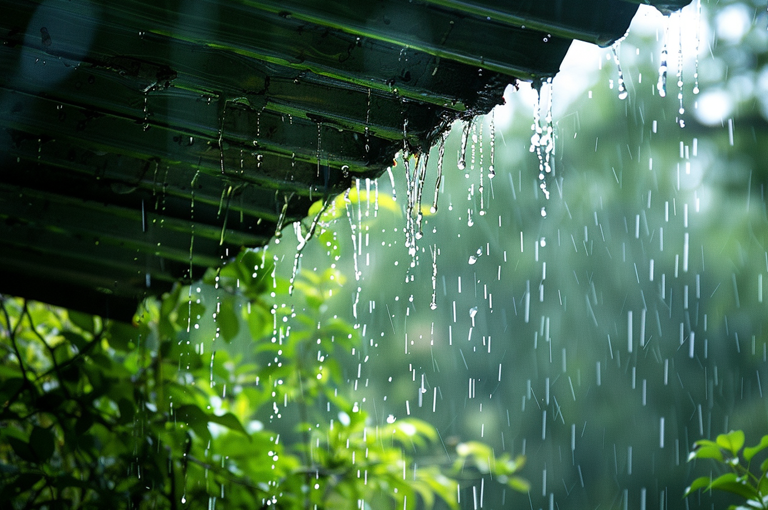
Modular Cisterns
Modular cisterns are similar to modular rainwater cisterns but may be used for a broader range of applications, including storing potable water, wastewater, and other liquids. The modular design allows for easy expansion and customization to fit specific storage needs and space constraints. They are made from durable materials that ensure longevity and reliability.
Stormwater Attenuation Crates
Stormwater attenuation crates are modular systems designed to manage and control stormwater runoff. These crates are often used underground to temporarily store excess stormwater, reducing the risk of flooding and erosion. The stored water is then slowly released into the ground or drainage systems, mimicking natural water absorption processes. Stormwater attenuation crates are commonly used in urban areas, infrastructure projects, and sustainable drainage systems (SuDS).
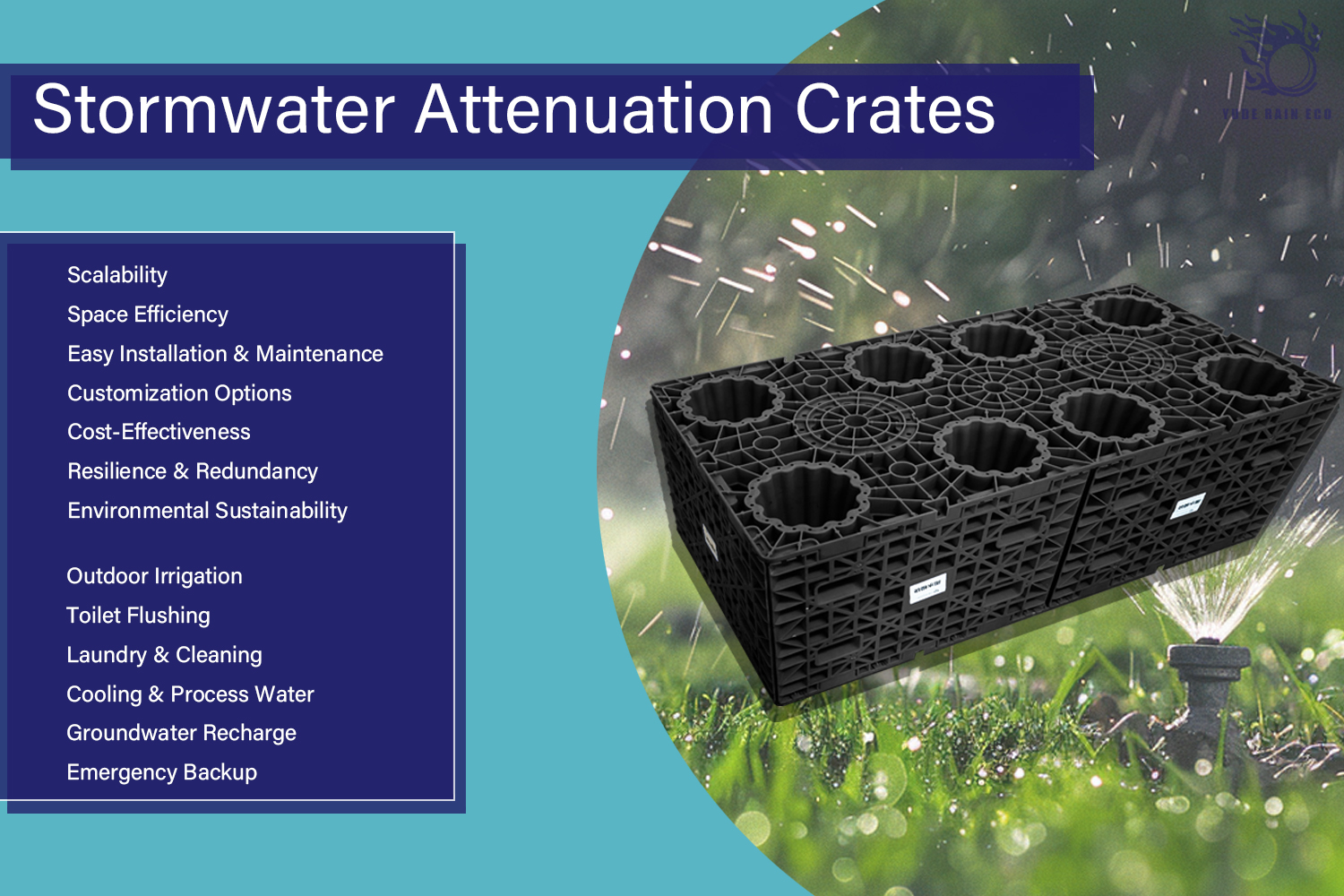
Modular Rainwater Harvesting
Modular rainwater harvesting refers to the use of modular systems to collect, filter, store, and utilize rainwater. These systems typically include components such as:
Catchment Area: Surfaces like rooftops that collect rainwater.
Gutters and Downspouts: Channels that direct water from the catchment area to the storage system.
Filters: Devices to remove debris and contaminants from the collected water.
Storage Modules: Interconnecting units that form the cistern or storage tank.
Pumps and Distribution Systems: Equipment to extract and distribute the stored water for various uses, such as irrigation, toilet flushing, and laundry.
Key Features and Benefits
Scalability: Easily expandable by adding more modules to meet increasing water storage needs.
Versatility: Suitable for various applications, including residential, commercial, agricultural, and urban infrastructure.
Durability: Made from high-quality materials resistant to corrosion, UV radiation, and weathering.
Ease of Installation: Designed for quick assembly without the need for heavy machinery or specialized tools.
Environmental Impact: Reduces dependency on municipal water supplies, mitigates stormwater runoff, and promotes sustainable water management.
Applications
Residential: Garden irrigation, toilet flushing, laundry, and other non-potable uses.
Commercial: Managing stormwater in schools, office buildings, and industrial facilities.
Agricultural: Irrigation and livestock watering, ensuring a reliable water supply.
Urban Infrastructure: Incorporated into public spaces and infrastructure projects to manage rainwater effectively.
The distinctions among modular rainwater cisterns, modular cisterns, stormwater attenuation crates, and modular rainwater harvesting systems:
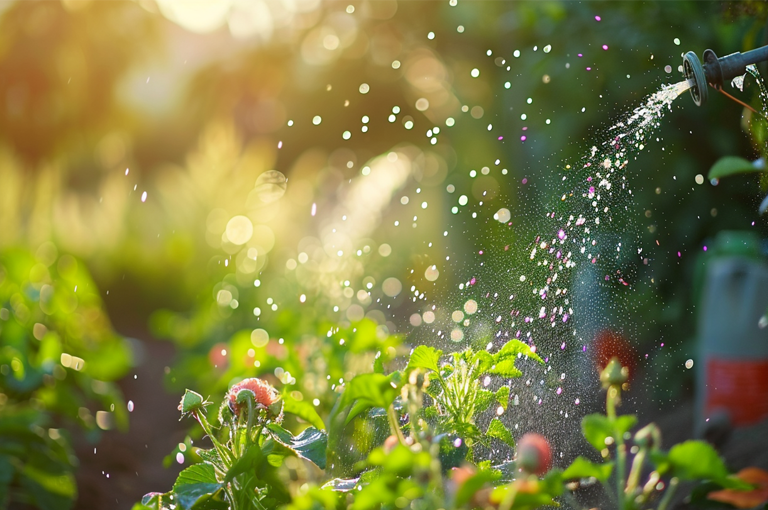
-
Modular Rainwater Cisterns
Purpose: Specifically designed to collect and store rainwater for later use.
Components:
Catchment Area: Typically rooftops.
Gutters and Downspouts: Direct rainwater to the storage.
Storage Modules: Interconnecting units forming a cistern.
Filters: Remove debris and contaminants.
Applications: Residential, commercial, and agricultural settings for non-potable uses like irrigation, toilet flushing, and laundry.
Key Features:
Scalable and flexible.
Made from durable, corrosion-resistant materials.
Easy to install and expand.
-
Modular Cisterns
Purpose: General-purpose storage systems for various liquids, including potable water, wastewater, and rainwater.
Components:
Storage Modules: Interlocking units.
Inlets and Outlets: For water entry and exit.
Optional Filters and Pumps: Depending on the use case.
Applications: Broader range, including potable water storage, emergency water supply, wastewater management, and rainwater harvesting.
Key Features:
Versatile and customizable.
Suitable for multiple types of liquids.
Durable and easy to maintain.
-
Stormwater Attenuation Crates
Purpose: Manage and control stormwater runoff to prevent flooding and erosion.
Components:
Crates/Modules: Interlocking units placed underground.
Permeable Membranes: Allow water to infiltrate the ground slowly.
Inspection Ports: For maintenance and monitoring.
Applications: Urban areas, infrastructure projects, sustainable drainage systems (SuDS).
Key Features:
Designed for temporary water storage and gradual release.
Reduces the risk of flooding and erosion.
Supports groundwater recharge.
Purpose: Comprehensive systems for collecting, filtering, storing, and utilizing rainwater.
Components:
Catchment Area: Roofs or other surfaces.
Gutters and Downspouts: Direct rainwater.
Filters: Remove debris and contaminants.
Storage Modules: Form the cistern or tank.
Pumps and Distribution Systems: For water extraction and use.
Control Systems: Monitor and manage water levels and quality.
Applications: Residential, commercial, agricultural, and industrial uses.
Key Features:
End-to-end solution for rainwater management.
Highly customizable and scalable.
Supports sustainable water use and conservation.
Summary of Differences:
Modular Rainwater Cisterns: Focus on rainwater storage for later use, primarily non-potable applications.
Modular Cisterns: General-purpose storage for various liquids, broader applications.
Stormwater Attenuation Crates: Manage stormwater runoff, prevent flooding, and support sustainable drainage.
Modular Rainwater Harvesting Systems: Comprehensive rainwater collection and utilization systems, including storage, filtration, and distribution.
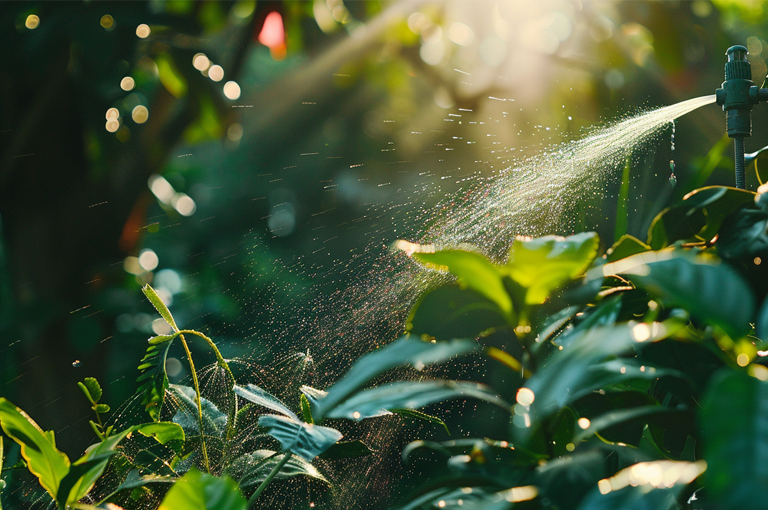
In fact, modular rainwater cisterns, modular cisterns, stormwater attenuation crates, and modular rainwater harvesting systems can overlap in functionality and sometimes be used interchangeably, depending on the specific application and design.
Interchangeability and Overlap
Modular Design:
Modular rainwater cisterns and modular cisterns both use a modular design, allowing for easy expansion and customization. This modular approach is fundamental to all the systems discussed.
Water Storage:
Modular rainwater cisterns and modular cisterns both store water, though the former typically focuses on rainwater. However, a modular cistern can be used to store rainwater, potable water, or other liquids.
Stormwater attenuation crates also store water temporarily to manage stormwater runoff, which can overlap with rainwater harvesting systems that capture and store rainwater.

Applications:
Stormwater attenuation crates are primarily for controlling runoff and reducing flood risks, but they can be integrated into a modular rainwater harvesting system to manage excess rainwater and store it for later use.
Components and Functionality:
All these systems may use similar components such as storage modules, filters, and connectors. For instance, the same modular units used for a rainwater cistern could be repurposed for stormwater attenuation.
Modular rainwater harvesting systems encompass the full cycle of collecting, storing, and utilizing rainwater, which can include using modular cisterns or crates as part of the system.
Practical Examples
Residential Use:
A homeowner installs a modular rainwater cistern system for garden irrigation. This same system can be expanded with additional modules to store more rainwater or handle stormwater runoff during heavy rains.
Commercial and Industrial Use:
A commercial building installs a modular rainwater harvesting system that includes stormwater attenuation crates to manage runoff and modular cisterns to store rainwater for non-potable uses like toilet flushing and cooling.

Urban Infrastructure:
A city implements a stormwater management system using attenuation crates to reduce flood risks. These crates can also be connected to a larger modular rainwater harvesting system to capture and use rainwater for landscaping and public facilities.
Key Points of Interchangeability
Scalability: All systems can be expanded or modified by adding more modules.
Customization: Modules can be configured to fit specific needs, whether for temporary stormwater storage or long-term rainwater harvesting.
Multi-Functionality: Components like filters, pumps, and monitoring systems can be used across different applications, making the systems versatile.
Conclusion
While modular rainwater cisterns, modular cisterns, stormwater attenuation crates, and modular rainwater harvesting systems have distinct primary functions, they share common design principles and components that allow them to be used interchangeably or integrated into comprehensive water management solutions. The modular nature of these systems makes them highly adaptable to various water storage and management needs, providing flexibility and efficiency in both residential and commercial applications.
Yude Rain Eco Modular Rainwater Harvesting Systems Solutions
Yude Rain Eco is dedicated to providing innovative and sustainable water management solutions. Our modular rainwater harvesting systems are designed to help you conserve water, reduce runoff, and contribute to a greener environment. Here’s how our solutions can benefit you:
Why Choose Yude Rain Eco?
- Scalable and Flexible: Our modular systems can be easily expanded and customized to meet your specific water storage needs.
- Durable Materials: Constructed from high-quality, corrosion-resistant materials to ensure longevity and reliability.
- Ease of Installation: Designed for quick and simple assembly without the need for heavy machinery or specialized tools.
- Comprehensive Solutions: From catchment to storage and distribution, we provide complete rainwater harvesting systems tailored to your requirements.
- Sustainability: Our systems help reduce dependence on municipal water supplies, manage stormwater runoff, and support sustainable water management practices.
Le nostre soluzioni
Residential Systems
- Garden Irrigation: Use harvested rainwater to keep your garden lush and green without increasing your water bill.
- Toilet Flushing and Laundry: Reduce your household water consumption by using rainwater for non-potable purposes.
- Emergency Water Supply: Ensure a reliable backup water source during shortages or emergencies.
Commercial and Industrial Systems
- Stormwater Management: Mitigate flooding and erosion with our stormwater attenuation crates, integrated into a larger rainwater harvesting system.
- Non-Potable Uses: Supply water for cooling systems, toilet flushing, and landscaping, reducing your facility’s water usage and costs.
- Sustainable Infrastructure: Meet regulatory requirements and achieve sustainability certifications like LEED by incorporating our systems into your building designs.
Agricultural Systems
- Irrigation: Provide a consistent water supply for crops and livestock, ensuring agricultural productivity.
- Water Storage: Store large volumes of rainwater for use during dry periods, improving water resilience and sustainability.
How to Get Started
- Consultation: Contact our team for a free consultation to discuss your water management needs.
- Design and Planning: We will design a customized modular rainwater harvesting system tailored to your specific requirements.
- Installation: Our experts will guide you through the installation process, ensuring a seamless and efficient setup.
- Maintenance and Support: We provide ongoing maintenance and support to ensure your system operates at peak efficiency.
Contatto
Ready to make a positive impact on the environment and your water usage? Reach out to Yude Rain Eco today to learn more about our modular rainwater harvesting systems and how they can benefit you.
Yude Rain Eco – Sustainable Rain Water Solutions for a Greener Future.


